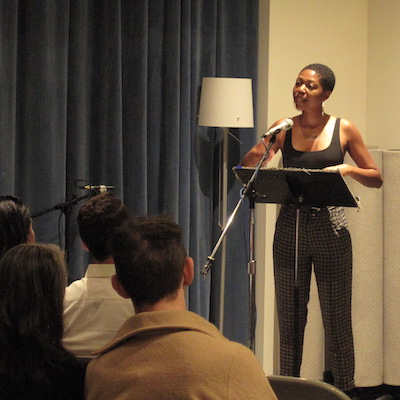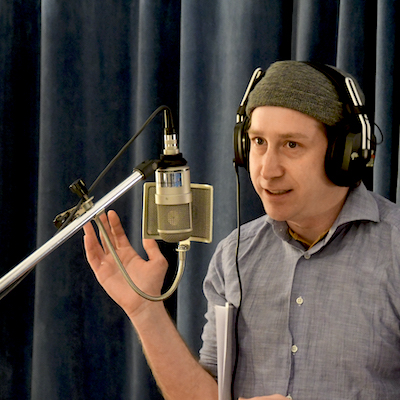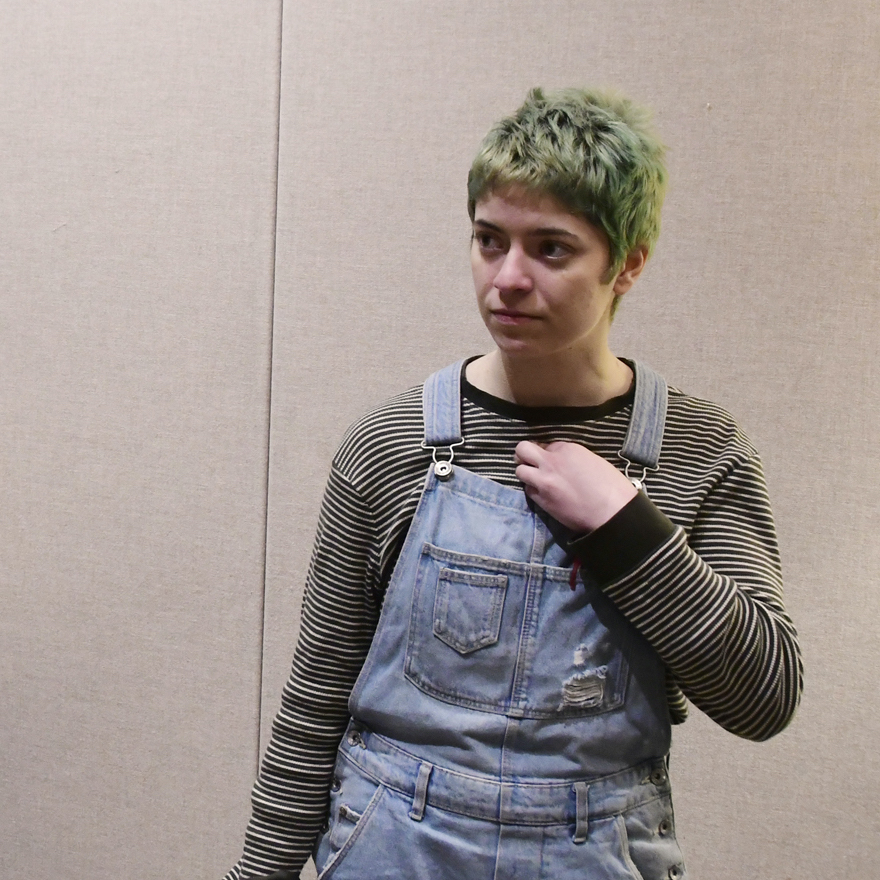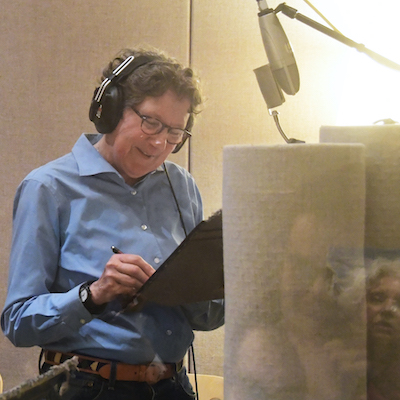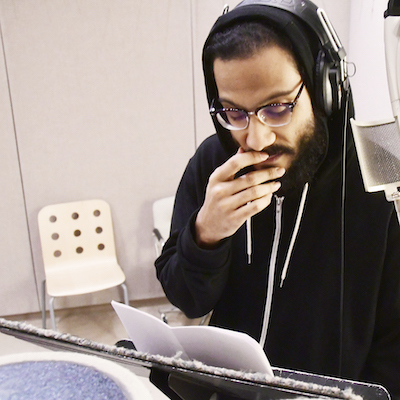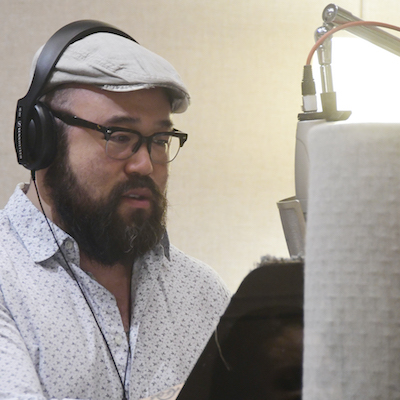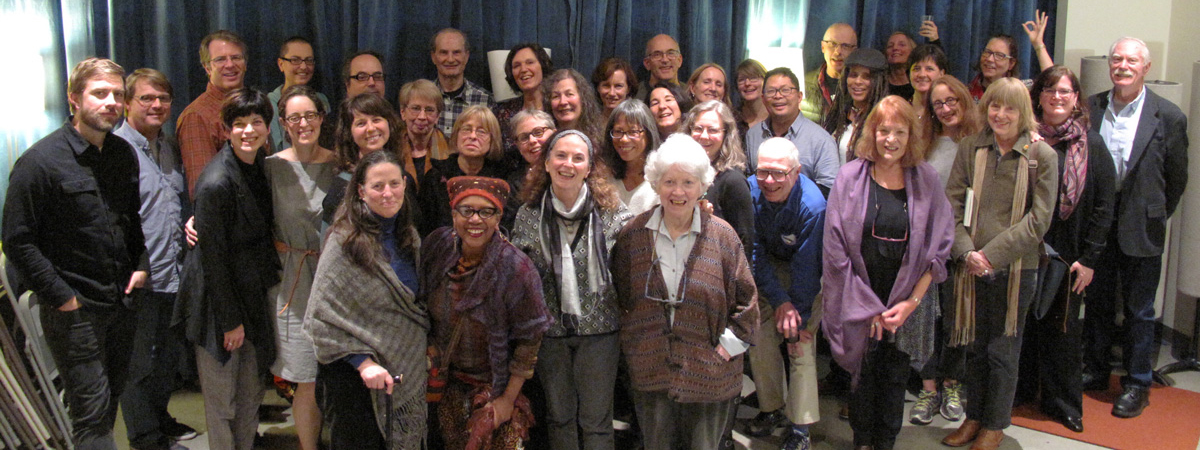SoundPages
SoundPages is produced by Jack Straw Cultural Center as part of the Jack Straw Writers Program. This podcast features interviews and live readings from artists in the Jack Straw Writers Program. Each year a series of twelve episodes is produced featuring the current Jack Straw Writers and curator.-
Respek - Kamari Bright
2018 Jack Straw writer Kamari Bright spoke with curator Daemond Arrindell about her poetic film project “Respek” and the myth of a post-racial America, the visibility of black female writers, and the methodical nature of her work. “A lot of what I do focuses on understanding of yourself and of your surroundings. I think there are a lot of distractions and misinformation in our society. And, for me, it’s important to kind of strip those things away and to show the truth of the situation.”
Music by Amy Rubin and Dawn Clement, produced as part of the Jack Straw Artist Support Program.
-
Silver Cliffs – Bryan Edenfield
2018 Jack Straw Writer Bryan Edenfield’s contribution to the 2018 Jack Straw Writers Anthology is a collection of opening paragraphs to books that have never been written to create a literary history of a fictional community that reflects the history of America. In his conversation with curator Daemond Arrindell, he discusses the inspiration behind this project, the fragmentary nature of writing, and getting at the truth of American history. “I was worried that I was getting too negative and critical, rather than imagining beautiful, fanciful. . . . If you can dream it, often it can inspire people, so I think that I wanted to do that. There’s a strong tendency towards people who are trying to make the world a better place in the book.”
Music by Amy Rubin and Dawn Clement, produced as part of the Jack Straw Artist Support Program.
-
Holy - Ashlan Runyan
Ashlan Runyan’s project for the 2017 Jack Straw Writers Program combines an essay, “All That Is Seen and Unseen,” exploring the creation of work and healing with a poem/quilt project entitled nothing is sacred, everything is holy. Her conversation with curator Jourdan Imani Keith covers religion in modern times, finding the sacred in the everyday and mundane, and how the fabric of words can knit us back together in a time when we are increasingly torn apart. “I think that the big space of a church or a cathedral especially is . . . a good place to let go of a lot of things that maybe are too big to be held anywhere else.”
Music by the Steve Griggs Ensemble, produced as part of the Jack Straw Artist Support Program.
-
Victim, Survivor, Warrior – Hera McLeod
2017 Jack Straw writer Hera McLeod’s memoir in progress chronicles her experience of surviving an abusive relationship and her fight to protect both herself and her son. In her conversation with curator Jourdan Imani Keith, Hera discusses her journey, the process of discarding illusions, and using her voice as a warrior. “I can’t protect anyone if I don’t stick up for myself . . . no one’s gonna come and save you, you know? You have to do something yourself.”
This podcast includes discussion of domestic violence and the death of a child.
Music by the Steve Griggs Ensemble, produced as part of the Jack Straw Artist Support Program.
-
Isotopia – Ellie Belew
2017 Jack Straw Writer Ellie Belew’s mytho-historic novel, Isotopia, examines the intersection of science, one’s sense of place, and the personal life of a female physicist working on the Manhattan Project. In her interview with Jourdan Imani Keith, Ellie discusses Post-WWII America, the emergence of the modern woman, and the ways in which these themes are echoing in modern times. “To me, the way that stories work . . . is that they can give you kind of a double-vision. You can see the thing that went on in the story and it makes you see what’s going on with you and around you differently.”
Music by the Steve Griggs Ensemble, produced as part of the Jack Straw Artist Support Program.
-
Erasure - Quenton Baker
Quenton Baker’s project for the 2017 Jack Straw Writers Program was to write a series of erasure poems, exploring the omission of certain events and narratives of enslaved people in the United States. In his conversation with curator Jordan Imani Keith, Quenton talks about the slave revolt of 1841, his process for creating this kind of poetry, how his work speaks to people in these current times, and offers some advice to other writers navigating difficult material. “There’s a desire to do it all, to do as much as you can, to get it all out of you as fast as you can, but I would say that taking a break, letting the field lie fallow is part of the process.”
Music by the Steve Griggs Ensemble, produced as part of the Jack Straw Artist Support Program.
-
Love - Wancy Young Cho
In 2017 Jack Straw Writer Wancy Young Cho’s piece “The Men on the Hill”–from his collection in progress tentatively titled Let’s Pretend We Don’t Know Each Other–a man describes his romantic encounters with a series of men who move in and out of his housing complex. Though his work is fiction, the bulk of his writing is autobiographical and draws on the theme of love and its many forms. When he sat down with curator Jourdan Imani Keith, they discussed the intersections of race and sexual orientation and how those influence our ideas of what love looks like. “I think a lot of factors play into it: being Asian–being Korean–and then being gay and then sort of being an outsider even within these outsider communities, so there’s tangents of love, like the sense of belonging and not belonging . . . I think that’s at the core of each story.”
Music by the Steve Griggs Ensemble, produced as part of the Jack Straw Artist Support Program.
-
Tenderloin - Calvin Gimpelevich
Calvin Gimpelevich’s piece in the 2017 Jack Straw Writers Anthology is an excerpt from his novel Tenderloin, set in an alternate reality present-day San Francisco, tracing the intersections of various movements and communities through the 1970s. His conversation with curator Jourdan Imani Keith covers his love of history, using writing as a tool to build empathy, and the way that his personal transitions informed his journey as a writer. “Events and people are very complicated . . . and the best thing is to probably have as much compassion for people as possible without letting them bulldoze you or other people–which, you know, you could put on a pillow and embroider it.”
Music by the Steve Griggs Ensemble, produced as part of the Jack Straw Artist Support Program.
-
Shoes - Catalina Marie Cantú
2017 Jack Straw Writer Catalina Marie Cantú has been working a on a series of short creative non-fiction stories as a way to speak to young women about feeling okay with who they are in a Photoshop world. Her conversation with curator Jourdan Imani Keith covers bullying, the influence of teachers, and the ubiquity of “Buster Browns,” the title of her piece in the 2017 Jack Straw Writer’s Anthology. “We have to build bridges with each other in order to move forward in this day and age, despite the political rhetoric that would have us do otherwise.”
Music by the Steve Griggs Ensemble, produced as part of the Jack Straw Artist Support Program.
-
Divination – afrose fatima ahmed
After a series of personal transitions, 2017 Jack Straw Writer afrose fatima ahmed went from “running around and achieving” to spending a year and a half on the Olympic Peninsula to be with herself in nature. Her collection of poems blood gold and honey, which grew out of poetry commissions at farmer’s markets and festivals, has become an intricate tarot deck with accompanying rituals. When she sat down with curator Jourdan Imani Keith, they discussed the idea of poetic divination being a tool to reach into your subconscious and experiencing connection and reflection through the work. “If somebody buys the deck and chooses to use it as a tarot deck, or to pull a card for inspiration or contemplation . . . they’re continuing to create the story of each poem. They’ll be embodying it, and the meaning that they draw from it will be theirs.”
Music by the Steve Griggs Ensemble, produced as part of the Jack Straw Artist Support Program.


